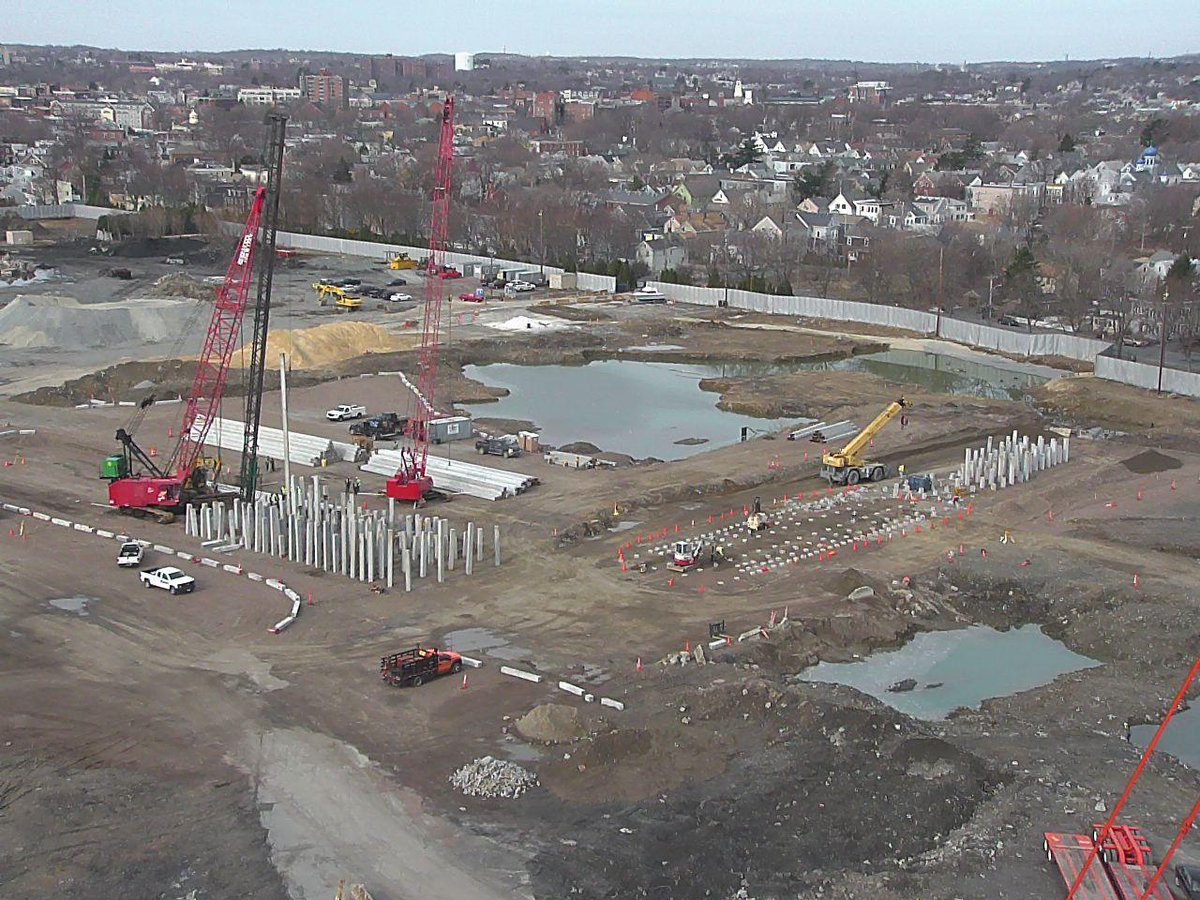The Custom House sits on 3,000 pilings.
Its not that you can't do it, but the design calls for a platform supported by columns; how the columns will be supported is unclear.
Hudson Yards: 28 acres, 300 caissons, 4-5 feet in diameter drilled into bedrock which is 20-60 feet below the surface. Construction cost of the Hudson Yards platform is $1.5 billion. (The $1.2 billion estimate for Boston includes land purchases and relocation costs.)
_______________________
The larger point is that Boston's official bid to the IOC in about six months will be submitted without the city or B24 having ownership of all the land parcels needed for the Widett stadium site; without any significant engineering studies of the site being done; and without a developer identified willing and able to pay for and build the platform on which the stadium will sit.
One can contrast that with Stade de France, or even Hamburg, which proposes a new stadium to be built on private land, with industrial enterprises on the proposed site relocated, but I believe the Hamburg stadium, village, and other venues would be built with public monies.



